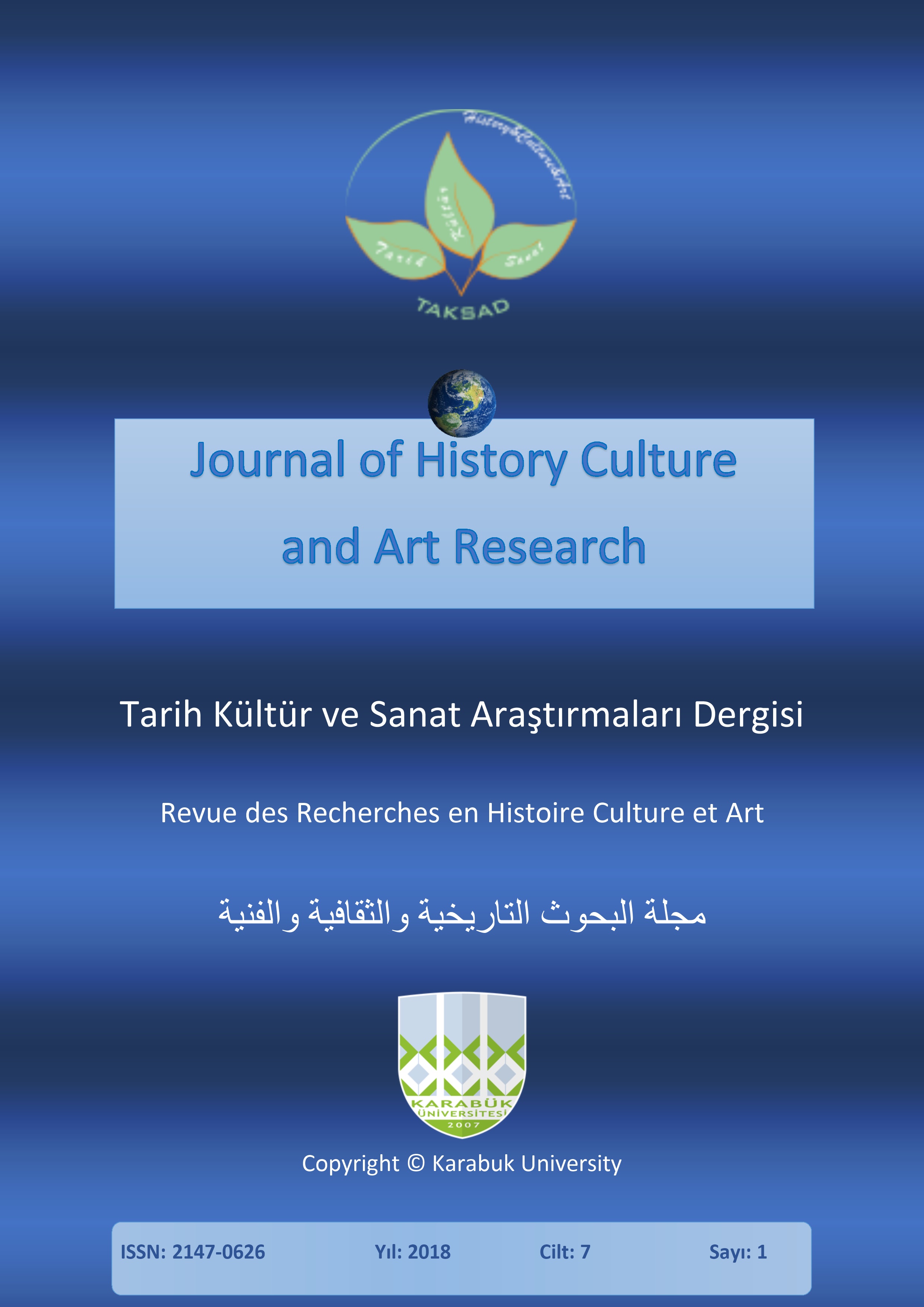The Xenophobia, Racial Identity and the Crisis of Federalism in East Pakistan
DOI:
https://doi.org/10.7596/taksad.v7i1.1343Anahtar Kelimeler:
Xenophobia- Racial identity in Bengal- East Pakistan crisis- Elections of 1970- Bengali nationalism- Dismemberment of Pakistan- Ethnic conflict in Pakistan.Özet
The racial identity of Bengal played a significant role in shaping and determining the political discourse in South Asia at different periods of history. The most violent expression of this identity occurred during the 1970-71 crisis between East and West wings of Pakistan and culminated in the dismemberment of Pakistan and the emergence of separate independent state of Bangladesh with the support of India. This violent episode of assertion of racial identity was marked with drama, trauma and tragedy. The tragic memories of violence are still alive and affect the attitude of people and state as well. While for Bengalis the war of 1971 was a war of liberation and deliverance from tyrannical and exploitative rule of West Pakistan, for Indians the victory was a great national achievement and a good lesson and settling of score with Pakistan. For Pakistanis it was the act of betrayal from Bengalis and an Indian conspiracy. An attempt will be made in this study to understand the development of racial identity in East Bengal and its culmination in armed conflict of 1971. An effort will be made to understand the xenophobia of Bengali nationalists and the xenophobic response of Pakistani military. The study will trace historical and structural roots of this phenomenon to understand the way this xenophobia was politicized and to understand the dynamics of this crisis through application of xenophobic response of conflicting identities. Xenophobia, in East Pakistan, acquired the general character and was institutionalized and manifested itself in mass scale. This study will be an effort to approach this problem through historical perspective; where the humans’ social behavior determined and guided the political conduct of a certain community.
Referanslar
Afzal, Rafique (2005). Pakistan: History and Politics 1947-1971. New York: Oxford University Press.
Ahmad, Feroz (1998). Ethnicity and Politics in Pakistan. Karachi: Oxford University Press.
Aziz, K. K. (2003). World Powers and the 1971 Breakup of Pakistan. Islamabad: Vanguard Books.
Bandyopadhyay, Sekhar (ed.). (2011). Nationalist Movement in India: A reader. New Delhi: Oxford University Press.
Benton, Michael (n.d.). “The Cultural Determinants of Xenophobia,” Anthropology Today, 12, 2.
Bhutto, Zulfikar Ali (1971). The Great Tragedy. Karachi: Vision Publication Ltd.
Bos, Neilesh (2014). “Purba Pakistan Zindabad: Bengali Visions of Pakistan, 1940-1947,” Modern Asian Studies, 48, 1. United Kingdom: Cambridge University Press.
Bose, Sarmila (2011). Dead Reckoning: Memories of the 1971 Bangladesh War. New York: Oxford University Press.
Faraz, Anjum (2013). “Silencing the Past: Role of the Army in 1970-71 Conflict and its Depiction in Pakistani Textbooks,” Pakistan Vision, 14, 1. Lahore: Pakistan Study Center.
Jared, Diamond (2002). The Rise and Fall of the Third Chimpanzee: How our Animal Heritage Affects the Way we Live. London: Vintage Books,
Kedurie, Elie (1994). “Nationalism and Self-determination,” in John Hutchinson and Anthony D. Smith (eds.), Nationalism. New York: Oxford University Press.
Kokab, Rizwanand Masarrat Abid (2013). “A Factor in East Pakistan’s Separation: Political Parties or leadership,” Pakistan Vision, 14, 1. Lahore: Pakistan Study Center.
Nag, Sajal (2001). “Nationhood and Displacement in Indian Subcontinent,” Economic and Political Weekly, 36, 51.
Niazi, A. A. K. (1998). The Betrayal of East Pakistan. New York: Oxford University Press.
Rose, Leo E. & Richard Sission (1992). War and Secession: Pakistan, India, and the Creation of Bangladesh. Karachi: Oxford University Press.
Saikia, Yasmin (2011). Women, War and the Making of Bangladesh: Remembering 1971. New York: Oxford University Press.
Taseer, Salman (1979). Bhutto: a Political Biography. London: Ithaca Press.
The Report of the Hamoodur Rehman Commission of inquiry into the 1971 War: As Declassified by the Government of Pakistan (n.d.). Lahore: Vanguard Books.
Zaheer, Hassan (1994). The Separation of East Pakistan: The Rise and Realization of Bengali Muslim Nationalism. Karachi: Oxford University Press.
İndir
Yayınlanmış
Nasıl Atıf Yapılır
Sayı
Bölüm
Lisans
Tarih Kültür ve Sanat Araştırmaları Dergisi'nde yayımlanan tüm çalışmalar Creative Commons 4.0 CC-BY lisansı ile lisanslanmıştır.
Bunları yapmakta özgürsünüz:
- Bu eseri her boyut ve formatta paylaşabilir — kopyalayabilir ve çoğaltabilirsiniz.
- Materyalden Adapte et — karıştır, aktar ve eserin üzerine inşa et
- her türlü amaç için, ticari amaç da dahil
Alttaki şartlar altında:
Atıf — uygun bilgiyi, lisansa linki, and ve değişiklik yapıldıysa değişiklik bilgisinivermelisiniz. Sizi veya kullanımınızı lisansörün onayladığı bilgisini içermemek kaydıyla, size uygun şekilde bu işlemleri gerçekleştirebilirsiniz.
AynıLisanslaPaylaş — Eğer materyali karıştırdınızsa, aktardınızsa ya da materyalin üzerine çalıştınızsa, ancak aynı lisans ile dağıtabilirsiniz.
- Ek sınırlamalar yoktur — Lisansın izin verdiği hakları başkaları üzerinde kanunlarla ya da teknolojiyikullanarak sınırlayamazsınız.







